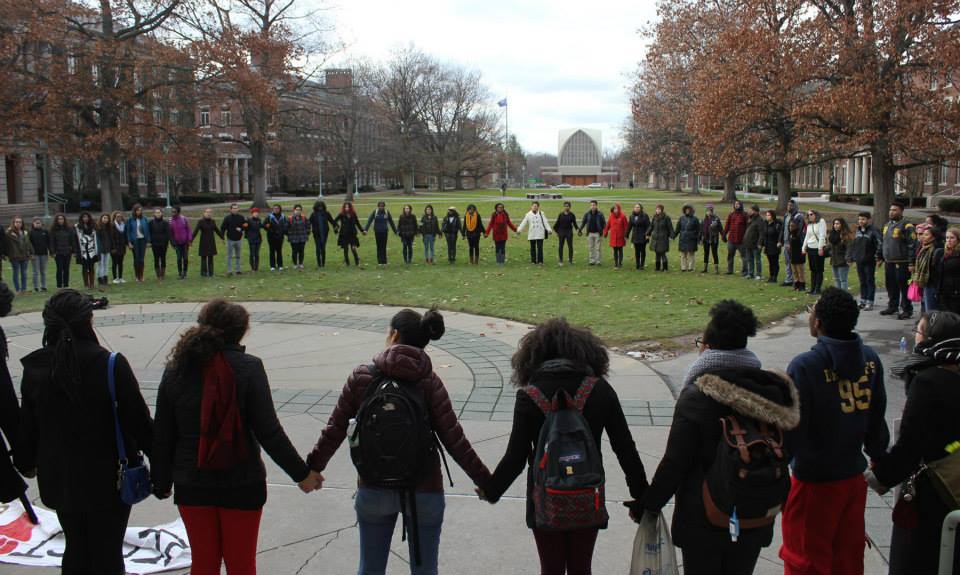As mentioned in my first post, one of the major factors in my decision to come to Rochester was my admissions interview. I remember hearing that "a spirit of activism permeates this campus." Even though the phrase was broad and relatively vague, it was enough to entice me.
I'd been active in social justice campaigns during high school and wanted to attend a school where I could pursue similar efforts. Plus, since so much of your time in college is spent in the company of others, I knew I wanted to attend a school where I'd find like-minded people with similar passions. I was happy to learn that Rochester is home to many students who are genuinely concerned about the welfare of others and are ready and motivated to act upon these concerns.
But it wasn't until I arrived at Rochester and got involved that I became aware of the concrete examples of "a spirit of activism." Luckily for me, the Rochester campus and community have countless manifestations of this ideal.

Students for a Democratic Society
The best example I've experienced thus far of a "spirit of activism," and the one that essentially encompasses all other examples, is Rochester's chapter of Students for a Democratic Society (SDS). According to the organization's Facebook biography, SDS "is a nonpartisan student organization and activist network that seeks to create an educated community dedicated to engaging issues of social and economic justice … [it] also provides an open democratic forum to engage in discourse about topics they may not feel comfortable discussing in other spheres. SDS is not affiliated with any political party and welcomes people with political views across the spectrum." Through this club, I've had the opportunity to meet and talk with individuals of diverse backgrounds and beliefs about important issues. This semester alone, we've discussed and taken action on issues such as income inequality and fair wages for service workers at Rochester.
Through direct action and events such as panel discussions and lectures (often sponsored by SDS), students at Rochester have access to valuable conversations and have the chance to create change. These opportunities have been the highlights of many Rochester students' college careers, including student activist and one of the leaders of SDS, Alsyha Alani, Class of 2015.
Alani participated very recently in peaceful protests planned by concerned students on campus regarding the grand jury's decision not to indict officer Darren Wilson in Ferguson, MO. Alani described the event, stating, "Students and members of the community mobilized to express our solidarity with Mike Brown. Coming together with my peers and allies, we chose to speak back…. It is incredibly empowering to be surrounded by people that, like you, are transforming their sadness and anger into meaningful and peaceful direct action."
Alani's words confirm the benefits of activism at Rochester: Students are able to express their views, form meaningful bonds, and unite and mobilize about issues that matter to them. President Seligman also supports such activism, stating, "We protect the rights of all in our University community to express their views. Peaceful assembly and expression of views are consistent with the school's core value of academic freedom."
And in a city such as Rochester, there's good reason to unite and mobilize. As sophomore SDS member Christian Wooddell says, "2012 census numbers show nearly 28% of the population in the City of Rochester lives in poverty, and it's easy to forget that in the luxury bubble of campus life. It is our duty as privileged students to engage in local issues and be activists for our communities." Many students at Rochester are cognizant of the conditions in parts of the city, and their willingness to serve the community contributes to the spirit of activism on campus. In my short time here, I've come to be aware of and to appreciate this spirit, and I look forward to the next four years of continuing to embrace activism at Rochester through SDS and other venues.

